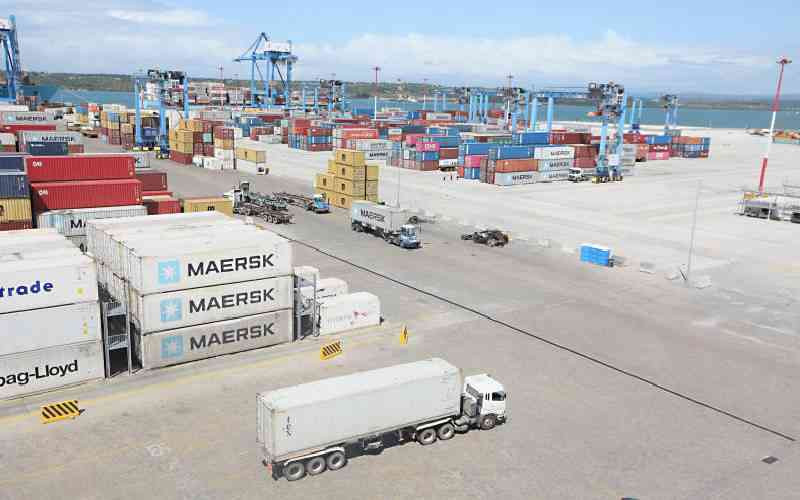
Clearing and forwarding agents have called for increased regulatory support to unlock the sector’s full potential.
The Kenya International Freight and Warehousing Association (KIFWA) stated that the total customs value for all imports and exports handled by its members amounted to Sh7.6 trillion for the financial year ended June 2025.
The sector, which contributes about nine per cent to Kenya’s GDP, processed 2.1 million customs entries, collecting Sh879.32 billion through customs and border control declarations, according to KIFWA Chairman Fredrick Aloo.
He said the sector can create more revenue through partnerships and with better regulation via an Act of Parliament. This emerged during the launch of the Kenya International Freight and Warehousing Association 2025–2030 Strategic Plan, a blueprint aimed at steering Kenya’s logistics industry into a new era of digital innovation, green logistics, and inclusive growth.
“This plan aims to enhance service delivery by proactively anticipating the needs of our members and customers,” he said.
However, he noted that clearing and forwarding agents face increasing competition, necessitating innovation to remain competitive.
KIFWA, the sole representative of Kenya’s clearing, forwarding, and warehousing companies, emphasised the sector’s challenges, including high transport costs, regulatory inefficiencies, fragmented legislation, and lack of regional coordination within the East African Community (EAC).
These issues hinder trade, economic growth, and regional integration despite the sector’s significant growth over the past decade.
Mr Aloo stressed the critical role of Information and Communication Technology (ICT) in enhancing logistics competitiveness, particularly in supporting just-in-time production and delivery. “Traders need fast, predictable, and timely release of goods,” he said, adding that improved transport infrastructure is essential to reduce high transaction costs. The logistics sector also grapples with frequent changes in customs procedures, complex documentary requirements, and high information-processing costs, which create an unpredictable business environment.
Mr Aloo called for stronger collaboration between the government and private sector to address these inefficiencies and foster a more conducive business climate.
ICT Cabinet Secretary William Kabogo lauded KIFWA’s strategic plan as a forward-looking framework aligned with national and continental development goals. “Logistics is a key enabler for job creation, lowering business costs, and expanding market access for MSMEs,” he said.
Mr Kabogo underscored the need for harmonised customs procedures and the removal of non-tariff barriers to position Kenya as a regional trade and logistics hub.
He also announced plans to accede to the Malabo Convention on E-Commerce, Cybersecurity, and Personal Data Protection to ensure trust and security in digital systems. Kenya Revenue Authority (KRA) Commissioner General Humphrey Wattanga lauded KIFWA’s emphasis on professionalism, policy advocacy, digital transformation, and stakeholder collaboration.
